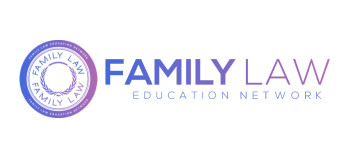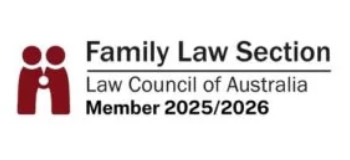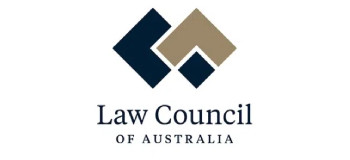Spousal Maintenance Lawyers Brisbane - Know Where You Stand, So You Can Move Forward
You’re not alone – get clarity, relief, and results from child support lawyers who listen and act fast.
Whether You’re Asking for Spousal Maintenance - or Facing a Claim - It Can Feel Unfair, Stressful and Confusing
Spousal maintenance is one of the most emotionally charged topics in family law. Most people don’t understand it – and not all lawyers are known for their communication skills.
If you’re seeking support, it can feel humiliating or terrifying to ask. If you’re being asked to pay, it can feel unfair, confusing and financially threatening.
Either way, the goal is the same: fairness, clarity and peace of mind.
At The Law People, our lawyers will explain how it works in plain English, with empathy, and with a strategy that puts your future first.

Here’s What Happens When You Contact Your Spousal Maintenance Lawyers...
Talk With an Experienced Lawyer
Quick response – no delays and you will speak with a expert, understanding lawyer who cares
Get Clear Answers About Your Rights
We’ll explain what’s possible and how the law applies to your specific case - in simple, plain English.
Feel Clear and Confident Moving Forward
Whether you engage us or not, you’ll leave the call with certainty and direction.

Your Lawyer Should Understand the Numbers, not Just the Law
Spousal maintenance often comes down to financial evidence – income, expenses, business cash flow, trust structures and disclosure.
Jill Johnstone, the firm’s principal, is an Accredited Family Law Specialist and a former accountant.
She knows how to:
- Analyse financial statements
- Interpret trust/company structures
- Break down misleading figures or manipulated numbers
- Guide negotiations around complex financial situations
When clarity around money is everything, having a lawyer who speaks fluent finance changes everything.
Trusted & Recognised Memberships, Associations and Affiliations






What Clients Say After Working With Us
Trustindex verifies that the original source of the review is Google. Very happy with the service, advice I received from Skye, Felicity and team. Very professional, and listened to my needs to provide good advice. Highly recommendTrustindex verifies that the original source of the review is Google. Jill and the team are professional, responsive and very knowledgeable. I have no reservations in recommending the law peopleTrustindex verifies that the original source of the review is Google. Jill Johnstone and The Law People team always provide exceptional service from start to finish which is why Rouse Lawyers confidently refers its clients who need expert and experienced family law solicitors to them. The Law People know how to guide clients through every step, making potentially stressful situations more manageable. Clients benefit from The Law People’s incredible knowledge and genuine care for client well-being.Trustindex verifies that the original source of the review is Google. Jill and the team are fantastic. I highly recommend them for any family law matters.Trustindex verifies that the original source of the review is Google. The staff at The Law People are total pros. They are friendly, supportive and above all they get results. Highly recommend, particularly if you are a woman who is nervous about being taken seriously.Trustindex verifies that the original source of the review is Google. Wonderful team to work with.Load more


Led by an Accredited Family Law Specialist
When everything feels uncertain, it helps to know you’re being guided by a team led by one of Queensland’s most qualified family lawyers.
Less than 3% of solicitors in Queensland hold the title of Accredited Specialist in Family Law. It’s not a marketing term – it’s formal recognition from the Queensland Law Society that Jill Johnstone, Principal of The Law People, is among the top-tier experts in the state.
For you, that means:
- Advice that’s precise, strategic and fully aligned with current legal standards
- Representation from someone trusted by peers, judges, and clients alike
- Fewer delays, fewer missteps, and a smoother path to resolution
In complex or high-stakes matters – especially involving children, property, or financial disputes – that level of expertise can make a real difference in your outcomes.
What truly sets this team apart is that legal skill never comes at the expense of personable service. You’ll feel it from the first conversation – real understanding, practical advice, and guidance that puts your best interests at the centre.
So if you’ve been searching for family law advice you can truly trust – you’ve just found it.
How Spousal Maintenance is Decided Under Australian Law
Spousal maintenance is not automatic. The law requires two things:
- That one party needs financial support
- That the other party has the capacity to provide it
The Court will consider:
- Health, age and ability to work
- Income, assets and financial responsibilities
- Care of children
- Living expenses that are reasonable
There’s no fixed formula, so your lawyer must know how to present a compelling, supported case – or how to push back on unfair demands.

Common Spousal Maintenance Questions
Answered Simply
Spousal maintenance can feel straightforward in theory, one partner provides financial support to the other if they cannot adequately support themselves. In reality, the law can quickly become complex.
Questions often arise about new relationships, hidden income, overseas payers, or whether payments can be changed once ordered. These issues can make an already stressful situation even harder to navigate. At The Law People, we break down the law in plain English, so you know what applies in your circumstances and what steps you can take.
Below, some of the most common questions about spousal maintenance are answered. This information is general only and not a substitute for legal advice. For guidance that’s specific to your situation, please contact The Law People to speak with one of our experienced family lawyers.
Is spousal maintenance different from child support?
Yes. Child support is about meeting the needs of children. Spousal maintenance is separate and deals with whether one former partner should provide financial support to the other if they cannot adequately support themselves. It’s about making sure both parties can manage financially after separation.
Can it be temporary or ongoing?
Spousal maintenance can be short-term (for example, while one partner retrains or finds work) or longer-term if a person has health issues, caring responsibilities, or other reasons they can’t earn enough income. The Court looks at what is reasonable in your situation.
Do I have to go to court?
Not always. Many spousal maintenance matters are negotiated and agreed upon privately or through lawyers, then formalised in an agreement or consent order. Court is usually only needed if there is a dispute.
You Deserve to Know What’s Fair.
Let’s Work it Out
Get the clarity you need, with advice you can trust. Start today, your financial peace of mind is too important to delay.
Your Questions About Child Support - Answered
Am I eligible to receive or required to pay spousal maintenance?
Eligibility depends on two things: whether one person can’t meet their own reasonable living expenses, and whether the other has the capacity to contribute. If both these conditions are met, spousal maintenance may apply.
How is spousal maintenance calculated?
There’s no fixed formula. The Court considers:
- The needs and expenses of the applicant (housing, food, bills, medical costs).
- Their income, resources, and ability to earn.
- The paying partner’s income, resources, and financial responsibilities.
- It’s a case-by-case assessment.
Can business income or company funds be considered?
Yes. If one partner controls a business or company, its profits and financial capacity may be considered. The Court can look beyond personal payslips to see what funds are genuinely available.
What documents do I need to provide?
Both parties must provide full financial disclosure. This usually includes bank statements, tax returns, payslips, superannuation, business or company records, and details of assets, liabilities, and regular expenses.
Can I make a private agreement instead of going to court?
Yes. Many couples prefer to reach a private arrangement and formalise it through a Financial Agreement or consent orders. This gives certainty and makes the agreement legally enforceable.
How long does spousal maintenance last?
It depends on your circumstances. It may be ordered for a set period (e.g., two years while someone studies or retrains) or indefinitely if there are ongoing health or care responsibilities.
What if I can’t afford to pay?
Spousal maintenance is only ordered if the other person has a genuine need and you have the capacity to pay. If paying would cause financial hardship, this is taken into account.
Can my ex claim this after our property settlement?
Usually, spousal maintenance is considered at the same time as property settlement. However, in urgent cases or where needs arise later, applications can sometimes still be made, but strict time limits apply. For married couples, it’s 12 months after divorce; for de facto couples, it’s two years after separation.
What are my risks if I ignore a request?
If you ignore a request or court order for spousal maintenance, the Court can enforce payment, issue penalties, and even order you to pay legal costs. It’s better to get advice early and respond properly rather than risk serious consequences.
Can spousal maintenance be backdated?
Sometimes, yes. In urgent cases, a Court can make an interim (short-term) order and may backdate it to the time the application was filed, meaning arrears could build up.
Does remarriage or re-partnering affect spousal maintenance?
If the receiving partner remarries, spousal maintenance usually stops. Re-partnering (e.g., moving in with a new partner) doesn’t automatically end it, but the Court will consider whether the new relationship reduces their financial need.
What happens if one party deliberately reduces their income?
If a person is “asset rich, income poor” or deliberately under-earning (e.g., choosing not to work, hiding money in a business, or paying themselves a token wage), the Court can look beyond their payslip and assess their true capacity to pay.
Can spousal maintenance be varied or ended after an order is made?
Yes. Orders or agreements can sometimes be changed if circumstances change significantly, for example, if the payer loses their job, or the receiver becomes financially independent.
What if the paying party lives overseas?
It can be harder to enforce, but not impossible. Australia has reciprocal arrangements with some countries, and other strategies (like orders against assets in Australia) may also apply.
Is spousal maintenance taxable?
No. Payments of spousal maintenance are not treated as taxable income for the recipient, and the payer cannot claim them as a tax deduction.
Can superannuation be considered instead of cash maintenance?
In some cases, yes. Superannuation splitting may be used as part of a broader financial settlement, but it usually won’t replace ongoing cash support if someone still has immediate living expenses.
Can spousal maintenance be urgent?
Yes. If someone suddenly has no means of support (for example, after separation), the Court can make urgent interim maintenance orders to cover basic living expenses while the longer-term issues are worked out.
